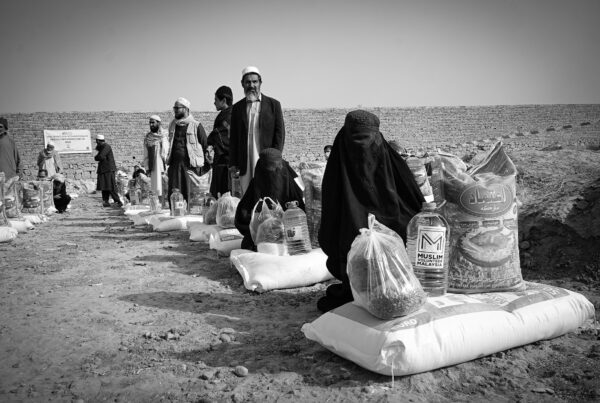By Jacquie Kubr, TCK Associate for Team Expansion
Our world is fallen. This is no surprise to you. Every day, natural disasters, life-threatening diseases, catastrophes of all kinds, as well as intentional acts of evil occur. It becomes a trauma when these negative events exceed our capacity to cope and cause a disruption in emotional functioning. It is an event that causes one to feel helpless.
Big T and Little t Traumas
Life-threatening traumas, or “big T” traumas most often come to mind when we think of trauma. Wars, abuses, assaults, accidents, and the like are all considered “big T” traumas. When negative events are non-life-threatening but still overwhelm one’s ability to cope, they are referred to as “small t” traumas. Examples include interpersonal conflict, legal troubles, infidelity, divorce, abrupt relocation, bankruptcy, etc.
Exposure to these potentially traumatizing events seems inevitable. Certain groups, such as military personnel, first responders, refugees, inner city communities, and people who live in locations prone to extreme weather events are more likely to experience “big T” traumas. “Small t” traumas will impact almost everyone at some point in their lives.
For the church, this means there will be people in each local congregation with exposure to potentially traumatic events. The Church needs to know how to care for these people, and it should inform and guide us as we consider how to interact with our global community.
Responding to Trauma
Traumatic events interfere with how we make sense of the world. Trauma can lead to changes in emotion, cognition, and behavior, including anger-management issues, anxiety, depression, interpersonal difficulties, and post-traumatic stress disorder. This is not a sign of psychological weakness or a lack of faith. This is a normal reaction to an abnormal event.
Behaviors that are an attempt to conceal or suppress one’s emotional reaction to a traumatic event are referred to as avoidance. This is self-protective and again, a completely normal reaction. Avoidance, however, contributes and maintains post-traumatic stress reactions.
If we want to heal, if we want the people we love and serve to heal, we must walk through the pain toward healing. We need to normalize trauma reactions and other mental health side effects.
If you never hear stories that reflect your own experience, you might continue to walk alone. But something powerful happens when we hear stories that reflect our own pain and reactions. Suddenly, we realize we aren’t alone. Someone might be willing to hear our story too. We can find healing.
A few years ago, I was on the women’s ministry team at our local church. A friend of mine came to speak at our event on overcoming shame and using your story to bring God glory. She shared her past traumas and sin-focused choices and how a wonderful, powerful moment of God empowered her to heal and overcome. People were moved, inspired, in tears, all of it.
However, the best part of the night happened afterward. A woman who had a similar background and story had been in the church for a few months. She approached my friend and said she hadn’t known it was safe to share this part of her life with people in the church. She had been too ashamed of her struggles, her self-doubt, and her post-traumatic symptoms to reach out and ask for help. She thought something was wrong with her. When my friend shared her story, it helped normalize this woman’s experiences, which gave her the opportunity to break free from the darkness where she was trapped.
Trauma’s Obstruction of God
“Christian existence holds together a sense of tragic realism and utopian expectation” (S. Jones, 2009).
There is paradox of living in a fallen world while believing in redemption. On one hand, we suffer the consequences of our own sin, the sins of others, or the fallen state of the physical earth. But we also trust that redemption is both occurring now and awaiting in eternity.
Even in our fallen state, God seeks fellowship with us. Think of stories of those who suffered trauma in the Bible, like Job, Joseph, David, Jesus, the disciples, and so many more. It’s not just the facts of their stories that are recorded. Their emotions are recorded. Their crises of faith are recorded.
Why would God want these specific stories recorded for all of history to see? One answer is that the stories show how He has demonstrated His love and care for us. These stories normalize our reactions after grief, loss, and trauma. God provided us people with whom we can relate. He provided us with words when ours fail and the permission to cry out in pain.
As the church, we need to follow this example. As we share eternal hope in Christ, we also need to provide care and hope in their current circumstance.
Hard Questions and Healing
“If I cry out concerning wrong, I am not heard. If I cry aloud, there is no justice.” (Job 19:7)
If you have been in relationship with someone who has walked through a trauma, you may have been asked a question about God’s care and faithfulness. If God is good, where was He when I was being hurt? How can a good God allow something like that to happen?
Trying to make sense and meaning out of loss is a natural reaction after something traumatic occurs. Unfortunately, the questions often go unanswered. In most cases, an answer would not be helpful anyway. The traumatized individual needs and longs for connection, comfort, and validation that what they are feeling and expressing makes sense.
Survivors are most likely to accept challenge, healing, and growth-producing information from lay-helpers who have already walked through a similar life event. This is why ministries like Grief Share, Divorce Care, Celebrate Recovery and the like are effective in both care and evangelism.
Trauma-informed leaders can provide the connection, psycho-education, normalization of reactions, and social supports necessary to help people begin their healing journey. As we realize how prevalent trauma is, we understand that trauma care is not optional.
Team Expansion is growing in our understanding and application of trauma care as it relates to caring for missionaries, their children, our neighbors, and the world.





One Comment